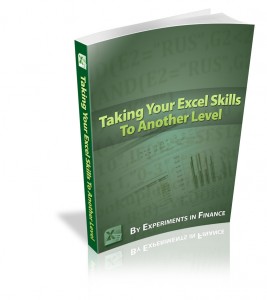This week’s 28-day T-bill rate auction was just released and stands at 5.176% APR (5.3% APY), above both the 91-day and 182-day investment rates at 5.108% (5.21% APY) and 5.153% (5.22% APY) respectively. By watching the daily yield curve last week (RSS Feed), I decided to continue investing in the 28-day bill but to hold on putting more money in the 3-month bill because I anticipated a growing spread. Below is this week’s updated chart:
Again, for Californians in the conservative 25% federal income tax and 9.3% state income tax brackets, this puts the tax-effective APY at 6.05%, which should be better than any comparable short-term cash vehicles currently out there.
I decided this week to set up recurring investments at Treasury Direct so that as soon as this 28-day T-bill matures, the money from it will automatically be rolled over into a purchase of another 28-day T-bill. Treasury Direct offers an easy way to do this by providing what’s called a zero-percent Certificate of Indebtedness (C of I). It sounds much more complicated than it is. A zero-percent C of I is nothing more than a non-interest-bearing security (really, you can just imagine it’s a savings account earning 0% interest) that’s only used as a temporary storage place for funds.
I first used the C of I when I set up the link from Treasury Direct to my credit union account by transferring $10 over in order to make sure that the link had been properly established. (Later, I transferred the $10 back. Easy to do, and there are no transaction fees for these transfers.)
This week, I set it up my recurring investments to withdraw and deposit money in the C of I account every month for the next 3 months. Because funds from a maturing T-bill are deposited on the same day that funds to be invested in a new T-bill occur on the same day (usually a Thursday), by setting up the source of my recurring transactions to be taken out from my C of I account, I should never have to worry about not having enough money to cover my next T-bill. I should also have no “dead time” when my money’s sitting around earning nothing. (Update: Sun (see comments below) points out correctly that I would in fact have “dead time” using this method because Treasury Direct would always withdraw less than the face amount of the T-bill when redeeming funds for my next T-bill purchase. His solution — using a high-yield savings account — probably nets the best of both worlds in terms of making your money work harder for you. Thanks for your comment!)
In theory, you could also do this with your linked account (like the one I have at my credit union), but in case the bank or credit union takes longer to process the deposit or runs into some technical trouble, I prefer to just use Treasury Direct’s C of I account. Besides, later on, I can always move the funds in my C of I account back to my credit union.
***************************************************
Look Good at Work and Become Indispensable Become an Excel Pro and Impress Your Boss

***************************************************


Sun
You probably don’t want to use C of I to fund your purchase as whatever in that account doesn’t earn you any interests. For example, you have $1000 in C of I (you can’t go below $1000 as you don’t what the next rate will be before the auction is over) and for your next purchase, TreasuryDirect draws $995 and you have $5 in your C of I. When the bill matures, you get $1000 back that can fund you next purchase, which again is bought at discount rate. In this way, you will always have a small amount in C of I which doesn’t earn you any thing.
The best way to do it is using a savings account instead of C of I to purchase the bills. I liked HSBC with TreasuryDirect for my T-Bill purchase and never had any problem.
Ricemutt
@Sun: That’s a good point, and thanks for sharing your experience. I think your solution is probably the best approach if you’ve never had any delays or hiccups with recurring payments. I use a credit union and have had one or two times when they had “downtime” that interrupted access to my account, so I’m not as confident about using them as my source of funds. Maybe it’s time to open an account at HSBC or elsewhere.
Finance Buff
Isn’t it easier if you just do it in a brokerage account? Money is transferred automatically to and from a money market fund. You will have zero dead time. I know you said Schwab doesn’t offer 28-day bills, but Fidelity does. Like Schwab, Fidelity charges nothing for Treasury auctions.
Ricemutt
That’s probably another good option, but not everyone who wants to buy T-bills will necessarily have enough money to open a brokerage account and get a good MMF rate. Fidelity sounds like it’s a good choice, though, if they offer transaction-free and easy processing as you say.
Sun
There’s no transaction fees with HSBC and there’s never any delay for my T-bill purchases. On the other hand, brokerage account may not be a good idea as they sometime do charge low balance fee and transaction fee.